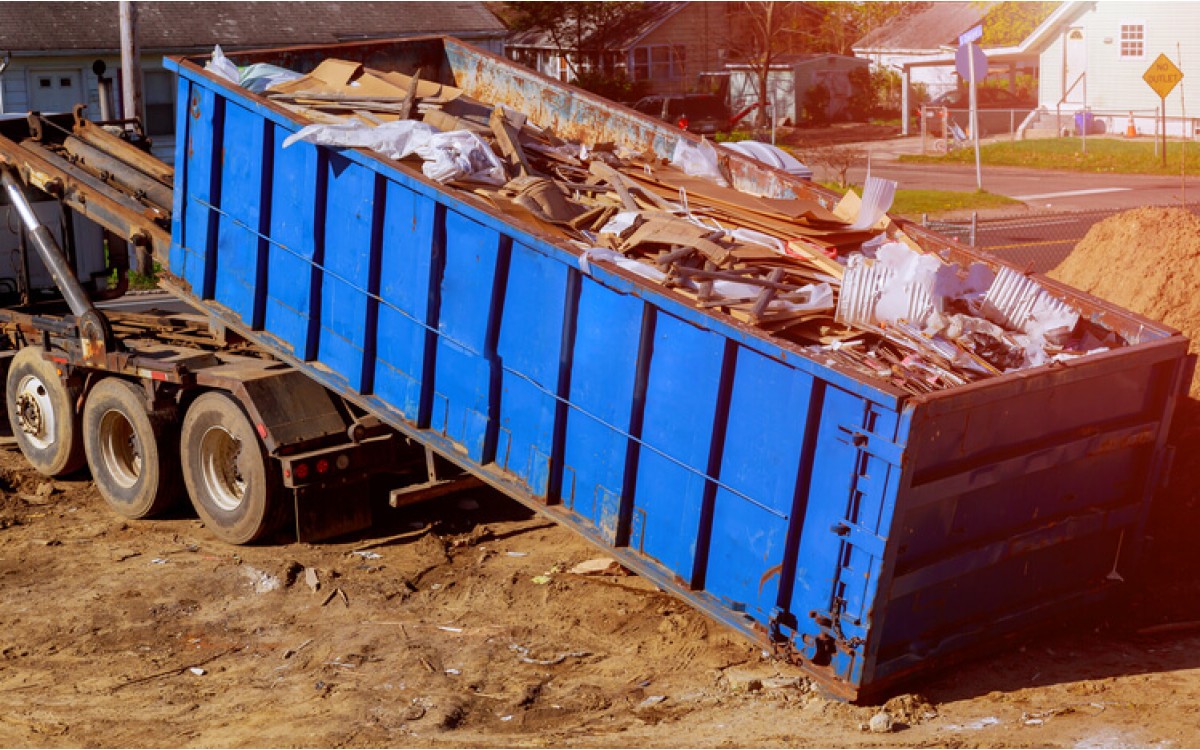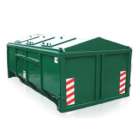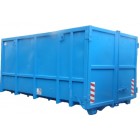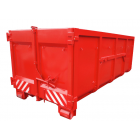The amendment to the waste law (Act of November 17, 2021 amending the waste law and some other laws) will significantly affect the way construction and demolition waste is managed. The new rules will apply from January 1, 2023. What does this mean in practice for construction companies and waste collection companies? How should they manage post-construction waste? What containers should they invest in and what should they pay attention to when choosing them?
New rules for managing construction waste - what's changing?
From the amendment, it is worth remembering 3 things:
- Two categories of construction and demolition waste will be distinguished: those produced by economic entities during construction works (e.g. during renovations, demolitions, constructions) and those produced in households, which are already handled by municipal systems.
- Construction and demolition waste will have to be segregated into at least 6 fractions.
- However, the obligation of selective collection will not apply to the following construction waste:
- from households (to which the regulations on the management of municipal waste still apply in accordance with Art. 1b para. 2 of the Act on maintaining cleanliness and order in municipalities (consolidated text: Journal of Laws of 2022, item 1297 as amended),
- accepted at PSZOKs (selective collection points for municipal waste),
- for which there is no obligation to keep records specified in the regulations issued on the basis of Art. 66 para. 5 of the Act of December 14, 2012 on waste.
Therefore, for example, individuals who are not entrepreneurs will still be able to accumulate and transfer mixed construction waste. The municipality will collect it from them in the same form as before, without the obligation to achieve the imposed levels of recovery.
Exemption from segregation in these three cases does not mean a complete resignation from selection. The obligation to sort construction waste simply rests on the shoulders of the recipient in such situations.
However, when an individual hires a company for renovation, the contractor will then have the obligation to document the way in which he deals with all the waste that he generated during the work.
The new regulations will therefore affect the daily work: construction companies, economic entities commissioning construction works, and companies collecting construction waste.
You have an obligation to segregate construction waste? See how to do it
The popular code "17 09 04 Mixed waste from construction, renovation and demolition" will no longer be able to be used by waste collection companies. The producer of post-construction waste from January 1, 2023, must master the new segregation rules so that the waste is collected from the construction site at all. Otherwise, serious consequences threaten me, e.g.:
- monetary penalties up to PLN 1 million,
- suspension of activity,
- withdrawal of permits/consents for legal activity.
Preliminary waste selection e.g. in a construction company involves separating them into min. 6 fractions:
- wood,
- metals,
- glass,
- plastics,
- gypsum,
- mineral waste (bricks, tiles, ceramics, stones, concrete).
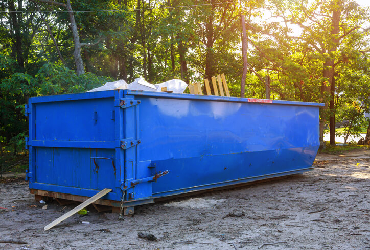
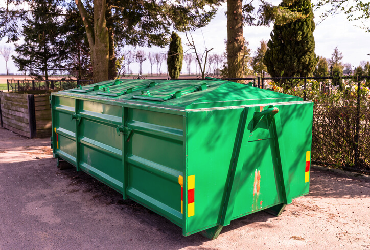
Construction and demolition waste, or what exactly?
Contrary to appearances, these are not different source wastes. According to the statutory definition, all are produced as a result of construction works. This definition refers to the Act of July 7, 1994 - Construction Law (consolidated text: Journal of Laws of 2021, item 2351, as amended), according to which "construction works" are both the erection of an object and changes in its state, and therefore also: demolition, demolition of elements, assemblies, renovations, minor works, such as drilling or cutting furniture, etc.
It is worth reminding that all post-construction waste (including small ones, such as styrofoam or ends of sewer elements) are no longer classified as municipal waste from January 2022, although they are subject to registration in the Database on products and packaging and waste management (BDO).
Amendment as a chance for real changes?
While today it is rare to show how waste is managed in a construction company, from 2023 it will already be a regular practice. The issuance of decisions to carry out construction works will depend strictly on proving that we manage post-construction waste correctly and store them in appropriate places.
Such tightening of regulations is aimed at reducing the number of illegal landfills and ensuring transparency in waste management by construction companies. Especially since illegal landfills of post-construction waste are still a sad everyday life. Public opinion on the effectiveness of the new regulations is divided, however. There are voices that imposing additional segregation obligations on economic entities will only intensify illegal activity in the gray area.
A certain hope for change is that selective collection of construction waste at source is nevertheless a relatively cheap procedure for companies, and high penalties and strengthened control competences of the WIOŚ (Voivodship Inspectorate for Environmental Protection) may this time discourage everyone who wants to continue getting rid of garbage in an illegal way.
Mixed waste in a construction company - is it legal?
The amendment to the law does not directly prohibit the issuance of KPO (Waste Transfer Card) with the code 17 09 04. Among the mixed construction waste, there simply cannot be any of the 6 fractions mentioned earlier. So if the company still has mixed waste on the construction site, then - to facilitate the situation - it is good to transfer it before January 1, 2023.
Container for construction waste - which one to choose and what to pay attention to?
The basis for effective segregation of construction waste is to equip yourself with universal, durable containers. Open KP 7 container or closed KP 7 container will be suitable for storing or transporting all heavy, oversized waste (construction, industrial, municipal). The KP 7 container can be almost completely adapted to the individual needs of the company, e.g. design other dimensions, adjust the thickness of the steel, use sheets with increased strength, choose a color other than the standard green. When segregating oversized waste, it is also good to have at your disposal a KP 18 container with a capacity of 18 m3.
For storing and transporting rubble, the type of KP 5 containers is particularly suitable. KP 5 containers, known as rubble containers, are stable, durable, adapted to traditional gate and hook cars. They can also be sold in a set with strong tarpaulins.
In light of the regulations that will apply to us from January 2023, both containers for rubble and containers for other post-construction waste should be customizable. Due to the need to separate min. 6 fractions, it is good to have an influence on the selection of dimensions, capacity, doors or flaps, as well as colors. When choosing a set of containers, also pay attention to which cars they are adapted to.
Do you have questions? Prepare for changes together with ECO24
We are here for you to translate all this theory into practice. Our experts will support you substantively and advise you on which solutions to use if you want to properly fulfill the new obligations imposed by the law. We have expanded our offer with high-quality KP containers, which from 2023 will be an indispensable equipment of every serious construction or renovation company.
For years, we have been helping our business partners (including companies from various industries, institutions, municipalities): not only do we select appropriate products for waste segregation, but we also educate in the field of legal and ecological obligations and suggest proven, logistical patents for convenient waste management.
The amendment is needed
In summary, adapting to statutory changes is not a big revolution for companies, although it is associated - at least at the beginning - with some additional financial outlays. The new approach to waste management is the implementation of EU assumptions, according to which member states should take action to promote segregation in order to take maximum care of high-quality recycling and safe disposal of harmful substances and materials. The amendment - even if there is a risk that it will be ignored by some companies - certainly tightens the rules for waste collection and requires more scrupulousness from companies.









 Waste Containers
Waste Containers Waste Bins
Waste Bins Street And Park Waste Bins
Street And Park Waste Bins Sand And Salt Containers
Sand And Salt Containers Hazardous Waste Containers
Hazardous Waste Containers House And Garden
House And Garden Park Benches
Park Benches

